In Our View: The Grand Challenge
What is the single biggest challenge facing cannabis science in 2022 – and beyond? Our 2022 Power Listers share their thoughts…
Margot Lespade | | 6 min read | Opinion
Amber Wise: In terms of cannabis science, a huge challenge is the need for trained/qualified chemists for the growing number of analytical testing labs. There are a very small number of people working on opening new labs that are trained in cannabis science – from what I see, the majority are business entrepreneurs who view labs as an “easy” way to enter the industry without getting a cultivator or processor license. They generally don’t have an understanding of the huge amount of work and expertise it takes to set up a lab, validate methods when there aren’t any published standardized methods, and then train staff who don’t have any experience with a pretty difficult product to test. The result? At worst, outright lab fraud, of which we’ve already seen a number of examples; at best, untrained/underpaid scientists doing their best but still not delivering quality testing or reliable results.
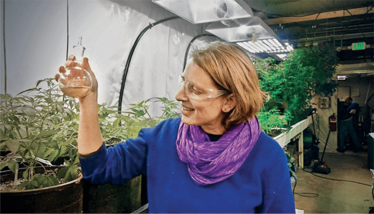
Amber Wise
Christopher Hudalla: Cannabis science, whether for provision of analytical data to support production or for applied research and development, continues to be hampered by State and Federal prohibitions, as well as inconsistent regulatory requirements. Regulations that vary from state to state, and from country to country, make it challenging to engage in collaborative research, and to produce consistent products across multiple geographies for consumer use. In the analytical testing arena, Federal prohibition makes it challenging to run Proficiency Testing (PT) Programs, which would permit laboratories to be evaluated on competency with appropriate sample matrices that more closely match the day-to-day testing of samples. This imbalance in regulatory requirements across the globe hinders the cannabis industry from developing into a healthy, stable, legitimate industry.

Christopher Hudalla
Alisia Ratliff: One of the biggest challenges facing cannabis science in 2022 is pseudoscience and false product claims. We are seeing producers of what we call “snake oil” entering the markets as legitimate brands. Testing labs have done blind analyses on products exposing the lack of cannabinoid content or incorrect cannabinoid content in these products. Marketing agendas are now eclipsing actual scientific evidence of newly isolated cannabinoid products. The rush to be first to market with a new product and capital appetite needs to come secondary to sound research and development activity before launching products into the market.
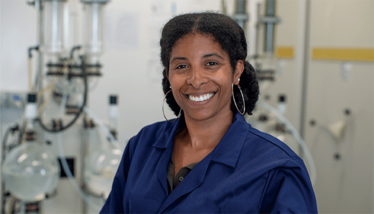
Alisia Ratliff

Cindy Orser
Cindy Orser: By far the biggest challenge facing the cannabis industry this year is to effectively deal with fraud. Specifically, the entrenched black market which continues to drag down the feasibility of the industry in some critical states like California and Oregon. This healthy black market exists because of the exorbitant cost of doing business in the legal cannabis space due to recurring licensing fees, taxes, testing costs, and lack of standard business deductions, all while meeting individual state action limits for contaminants and allowable dosing range per product item. Some of these state-regulated failing products flow into the black market to recoup business costs.
Mikael Sodergren: The single biggest challenge is the slow pace of translation of discoveries and generation of evidence to clinical practice. This issue is driven by a lack of global frameworks and infrastructures to support cannabinoid research. Whilst we can see that this is slowly changing in many countries, I would like to see this accelerated through properly funded government/academia/clinical/industry partnerships and the establishment of national centers of excellence to concentrate expertise, whilst we concentrate on bridging the current evidence gap as quickly as possible. I strongly believe this strategy will allow fastest access to cannabinoid therapies – where helpful and supported by good quality science and clinical data – to the greatest number of patients.
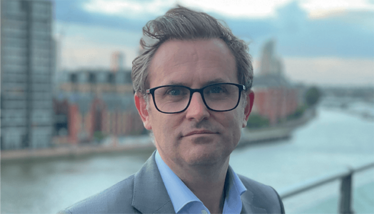
Mikael Sodergren
Jordan Zager: Federal prohibition in the United States and its impact on cannabis research remains a massive hurdle for scientific advancement of cannabis from a plant science perspective. US agriculture is a global powerhouse for a reason: a long history of federally funded fundamental plant research. Without fundamental research going on in cannabis, it makes it very difficult to make the leap to applied research on the plant. Right now, the majority of research breakthroughs are coming from private industry – and unless one is persistently monitoring patent submissions, the general public is unaware of those advancements. That’s typically not the case with any significant horticultural crop. Congress needs to step up and end Federal prohibition.
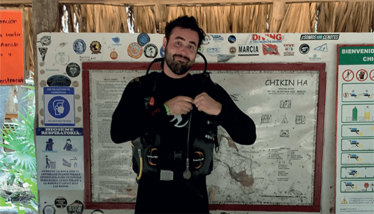
Jordan Zager
Daniela Vergara: The biggest challenge isfederal legalization. After that happens, I guess it will be who owns the data (IP) for many of the genetic/genomic tools that will be developed. Many of these tools are being developed by private companies that could be bought by BigAg or BigPharma, so I’d rather stay positive!
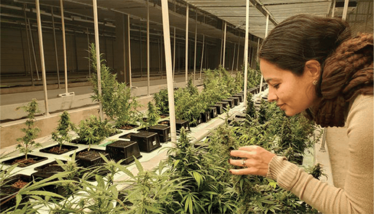
Daniela Vergara
Andrew Samann: Funding. Many of the cannabis companies are debt financed and, to compound that, there is significantly more cannabis being produced than what is consumed. To put it simply, money is not being spent on research and development. It is very likely that consolidation will happen over the next few years, and only after that will companies apply the science of continuous improvement to their products.

Andrew Samann
Markus Roggen: Moving beyond the hype and becoming a legitimate industry. Cannabis products are subject to the same economical forces as any other industry. Manufacturing costs need to be reduced, products need to offer customer-centric benefits and unique selling propositions. To achieve all of this, the industry needs to invest into process and product R&D.

Markus Roggen
Monica Vialpondo: In my view, one of the largest issues facing the field is how companies can maintain a balance between a robust research & development department and short-term financial interests. The scientific arm of a cannabis company provides it with new marketable products, QA measures that ensure a consistent product, and process optimizations that can increase revenue. The scientific method is core to any cannabis manufacturing company. Despite this, when money gets tight, R&D is frequently the first department to be downsized. This type of short-sighted decision-making is not good for the long-term health of a business: an investment in your company’s R&D department is an investment in competitive products, which help your bottom line. A strong scientific focus should be part of your brand’s identity to help set it apart from the ever-increasing number of copy-cat brands and products in the market.
Good science does take time – a fact that can be hard to understand for C-suite decision makers. Most major cannabis companies have far fewer scientists in decision-making roles than similar companies in the pharmaceutical and food industries, stifling innovation, hindering safety, and delivering a flood of lackluster products.
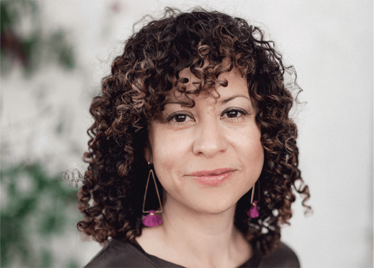
Monica Vialpondo
Shawn Helmueller: The biggest issues facing the industry in 2022 are the same issues that have plagued the industry since it started. In my opinion, there are too many people who think that you can jump into the industry, operate the same way you operated in the illicit markets, and make money at all costs without considering long term sustainability and consumer safety. Part of the issue stems from government and the lack of regulatory clarity to weed out bad players, but it also stems from ignorance (which ultimately circles back to regulatory ambiguity) or greed (or both) on the part of participants in the industry. At some point, the industry needs to get together and figure out how groups that are doing things the right way can be elevated – and how groups that are not can be held accountable.

Shawn Helmueller
Margot Lespade, Associate Editor, The Cannabis Scientist












